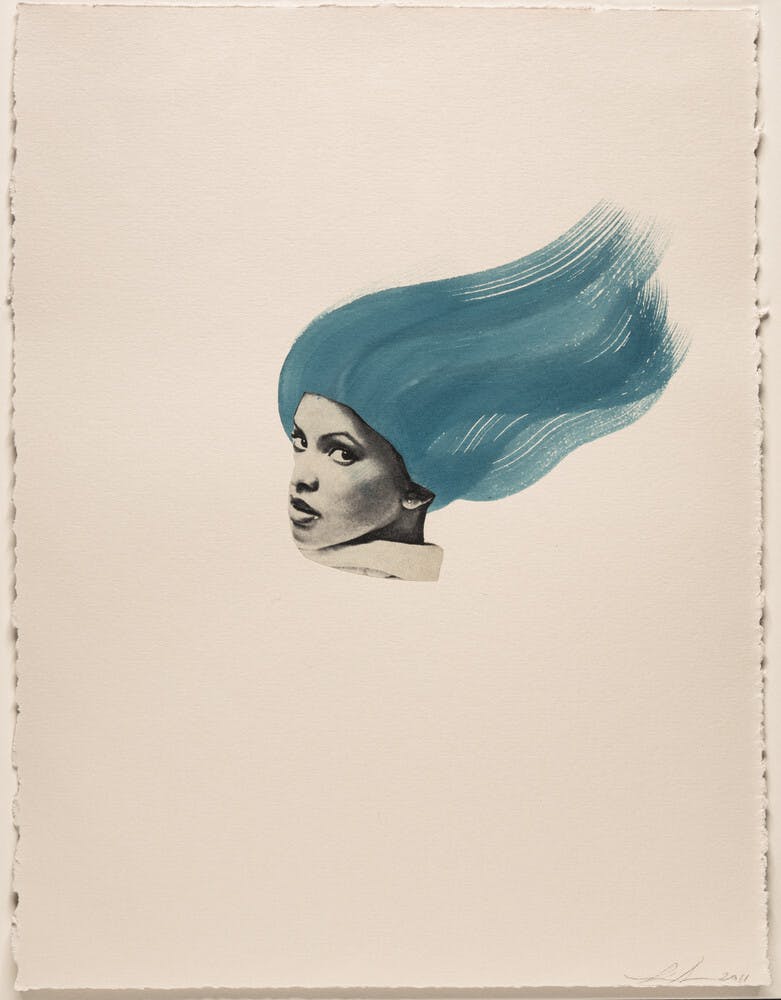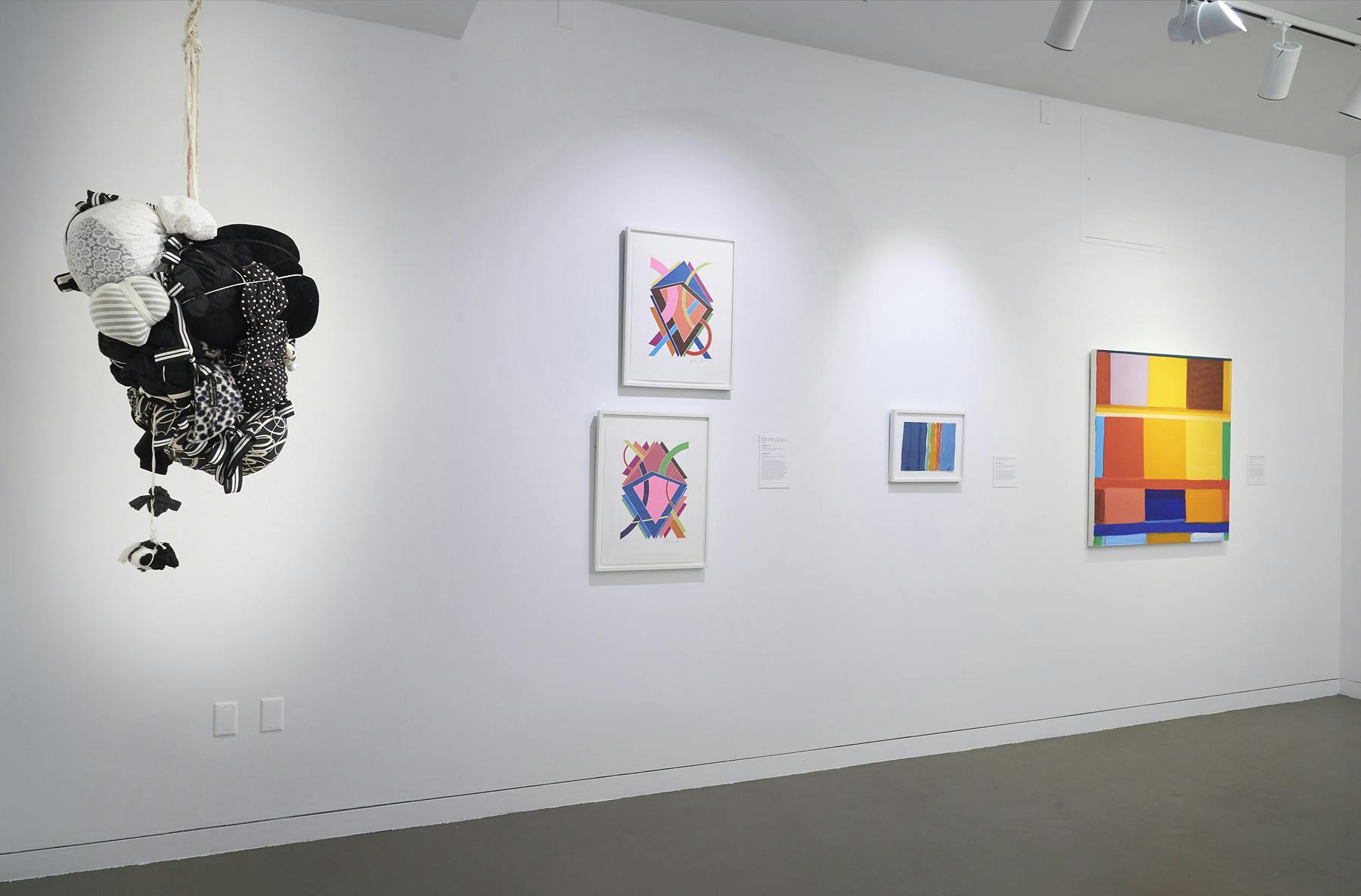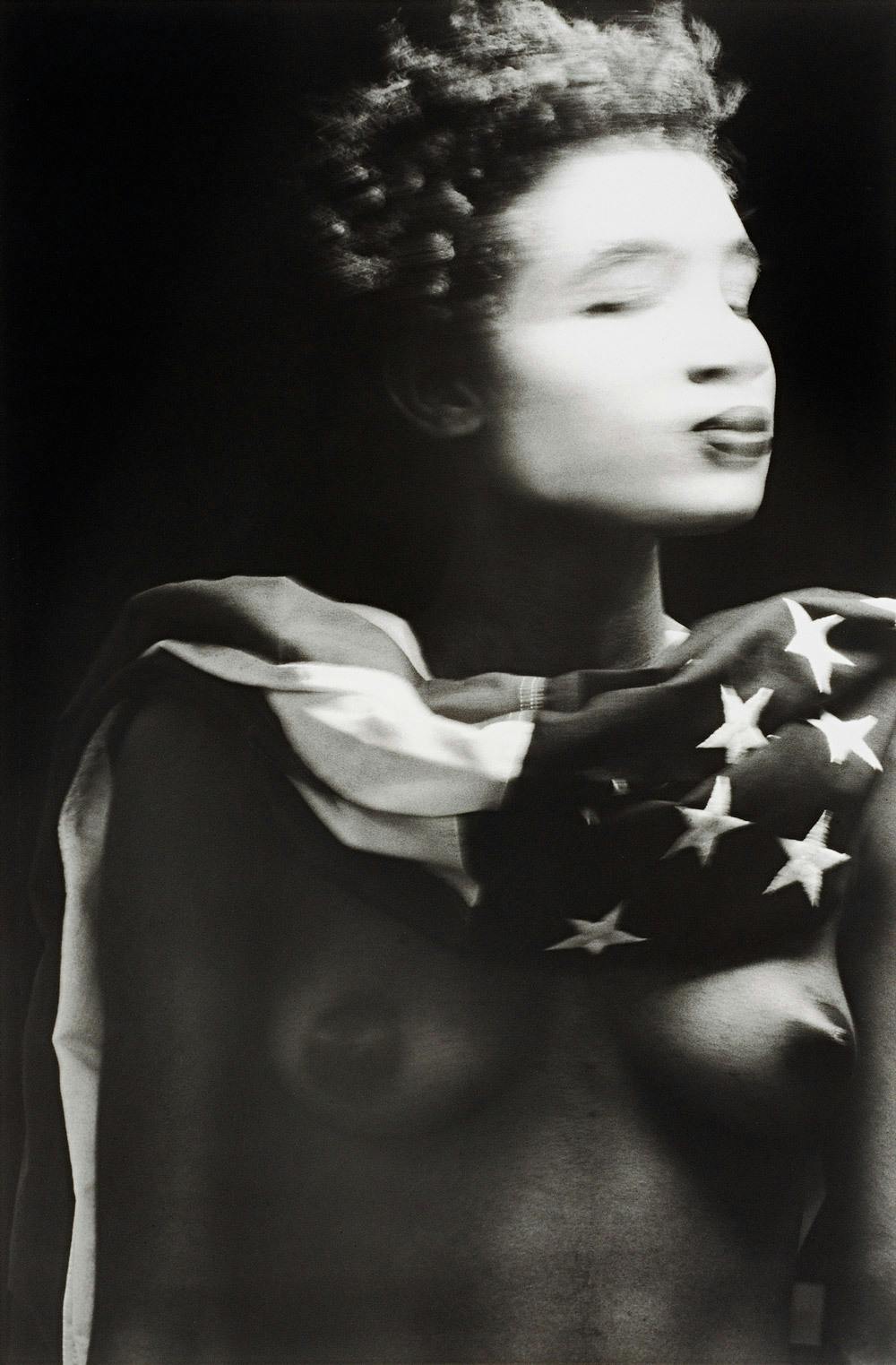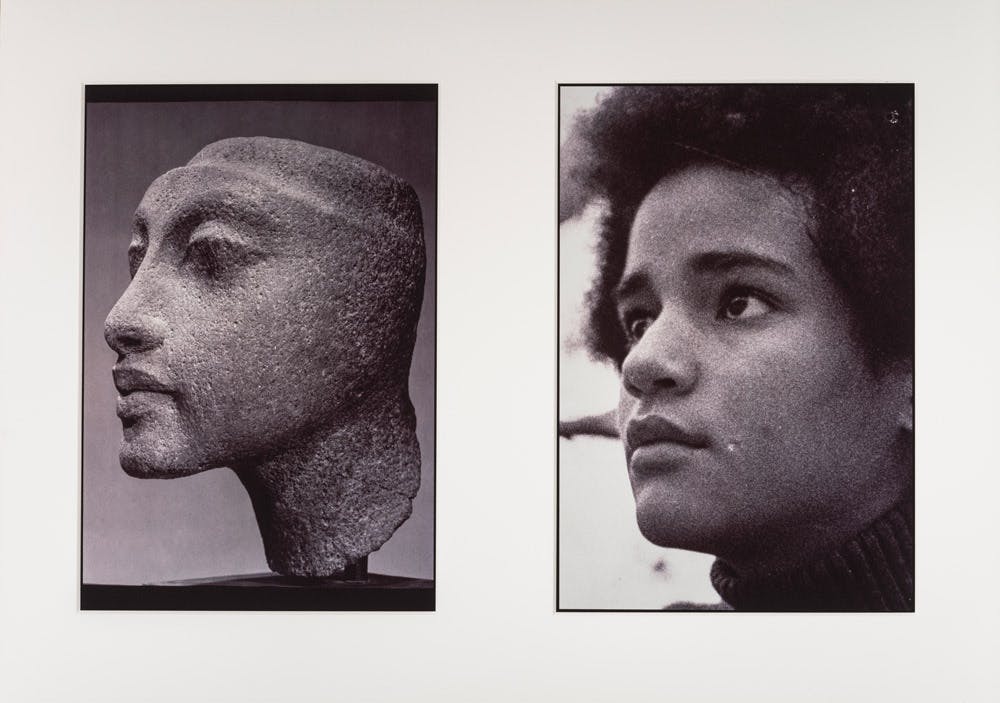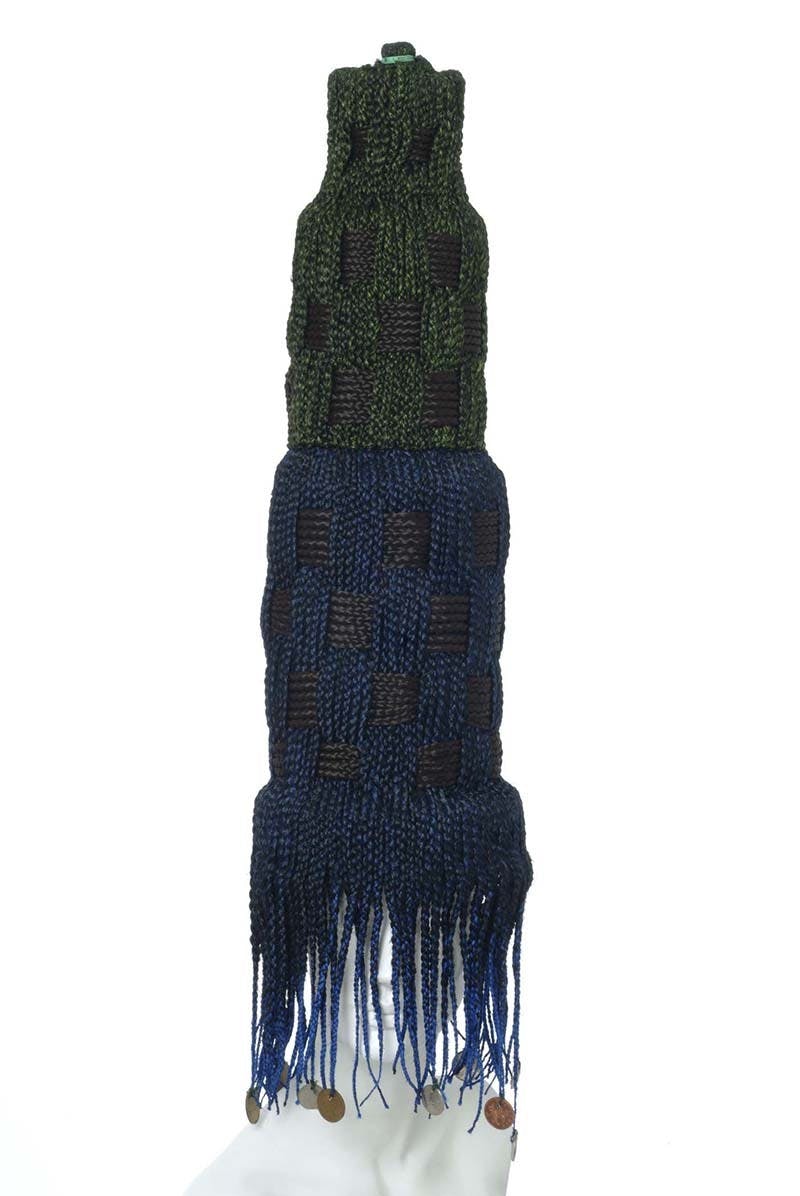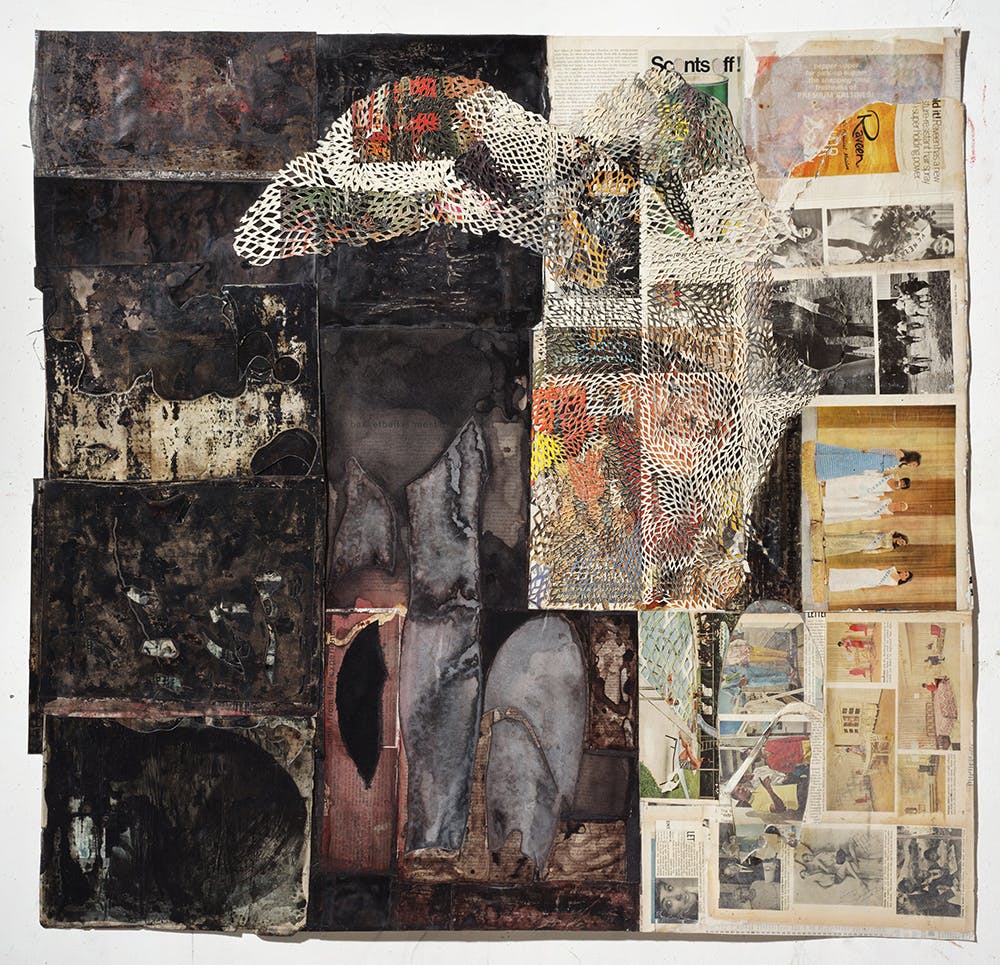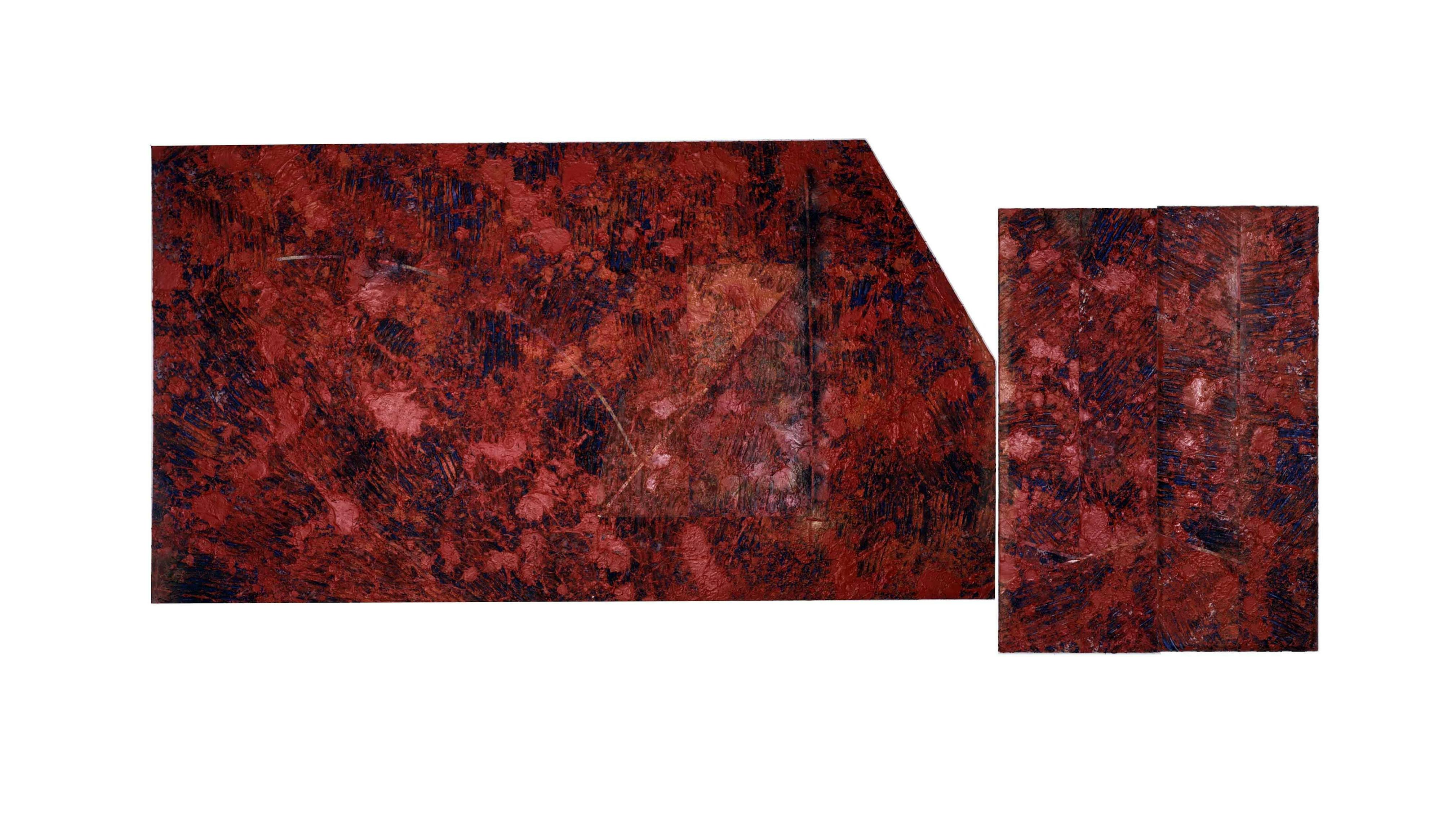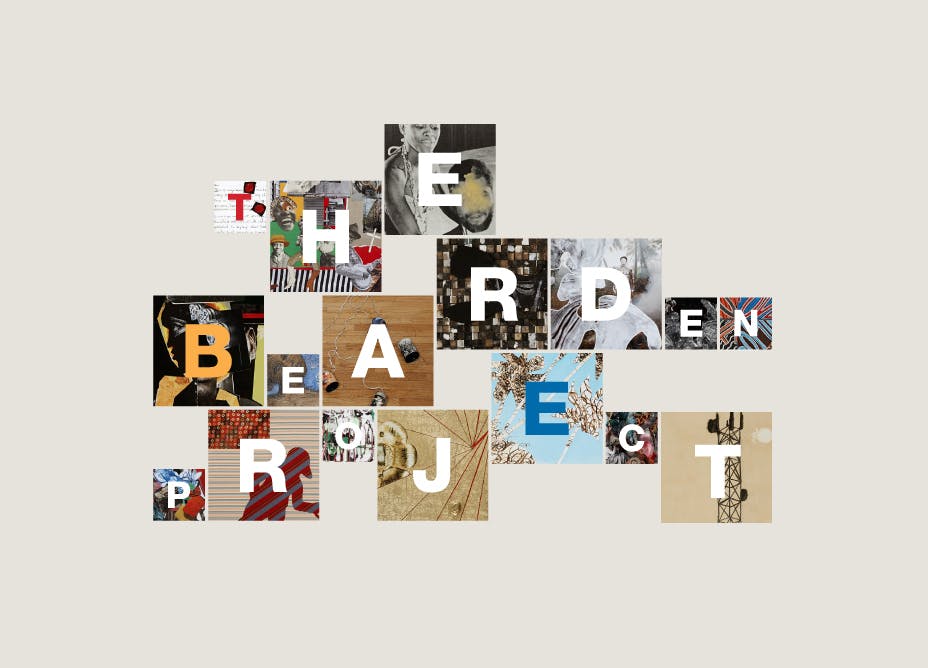Lorna Simpson
(b. 1960)Lorna Simpson examines notions of representation using techniques as varied as the juxtaposition of text and staged photography, to collage using imagery from Jet and Ebony magazines on paper.
Biography
Early in her practice, Simpson committed to examining the role and possibilities of photography in the articulations of identity, culture, gender, and race, with an awareness of photography’s history. Simpson has built a multidisciplinary practice—including film, video, painting, drawing, collage, and sculpture—to expand her conceptual concerns.
Simpson received her BFA in photography from the School of Visual Arts in New York in 1983, and an MFA in visual arts from the University of California, San Diego in 1985. During the 1980s, she developed a visual strategy grounded in Conceptualism. She created large-scale photographic works with spare, staged images of Black figures, seen from behind or in fragments, on neutral studio backgrounds with incisive accompanying text. From the 1990s onwards, Simpson has looked to printing photographs on felt while also exploring the capacity of film and video to expand on the core themes of her practice—desire and isolation. Simpson consistently explores other avenues for her visual investigations and has also incorporated collage and painting into her practice.
The artist has exhibited widely with solo presentations at the Museum of Contemporary Art Chicago, Chicago; Haus der Kunst, Munich; and the Walker Art Center, Minneapolis, among many others. She has been awarded several prizes, including a J. Paul Getty Medal in 2019.
Her work has been included in several exhibitions at the Studio Museum in Harlem since the late 1980s, including the solo presentation Lorna Simpson: Duet (2007). She was the inaugural recipient of the Studio Museum’s Joyce Alexander Wein Artist Prize in 2006. The Museum’s collection includes works that demonstrate the breadth of Simpson’s career.
Exhibitions and Events
Lorna Simpson
(b. 1960)Lorna Simpson examines notions of representation using techniques as varied as the juxtaposition of text and staged photography, to collage using imagery from Jet and Ebony magazines on paper.
Blue Wave, 2011
Biography
Early in her practice, Simpson committed to examining the role and possibilities of photography in the articulations of identity, culture, gender, and race, with an awareness of photography’s history. Simpson has built a multidisciplinary practice—including film, video, painting, drawing, collage, and sculpture—to expand her conceptual concerns.
Simpson received her BFA in photography from the School of Visual Arts in New York in 1983, and an MFA in visual arts from the University of California, San Diego in 1985. During the 1980s, she developed a visual strategy grounded in Conceptualism. She created large-scale photographic works with spare, staged images of Black figures, seen from behind or in fragments, on neutral studio backgrounds with incisive accompanying text. From the 1990s onwards, Simpson has looked to printing photographs on felt while also exploring the capacity of film and video to expand on the core themes of her practice—desire and isolation. Simpson consistently explores other avenues for her visual investigations and has also incorporated collage and painting into her practice.
The artist has exhibited widely with solo presentations at the Museum of Contemporary Art Chicago, Chicago; Haus der Kunst, Munich; and the Walker Art Center, Minneapolis, among many others. She has been awarded several prizes, including a J. Paul Getty Medal in 2019.
Her work has been included in several exhibitions at the Studio Museum in Harlem since the late 1980s, including the solo presentation Lorna Simpson: Duet (2007). She was the inaugural recipient of the Studio Museum’s Joyce Alexander Wein Artist Prize in 2006. The Museum’s collection includes works that demonstrate the breadth of Simpson’s career.
